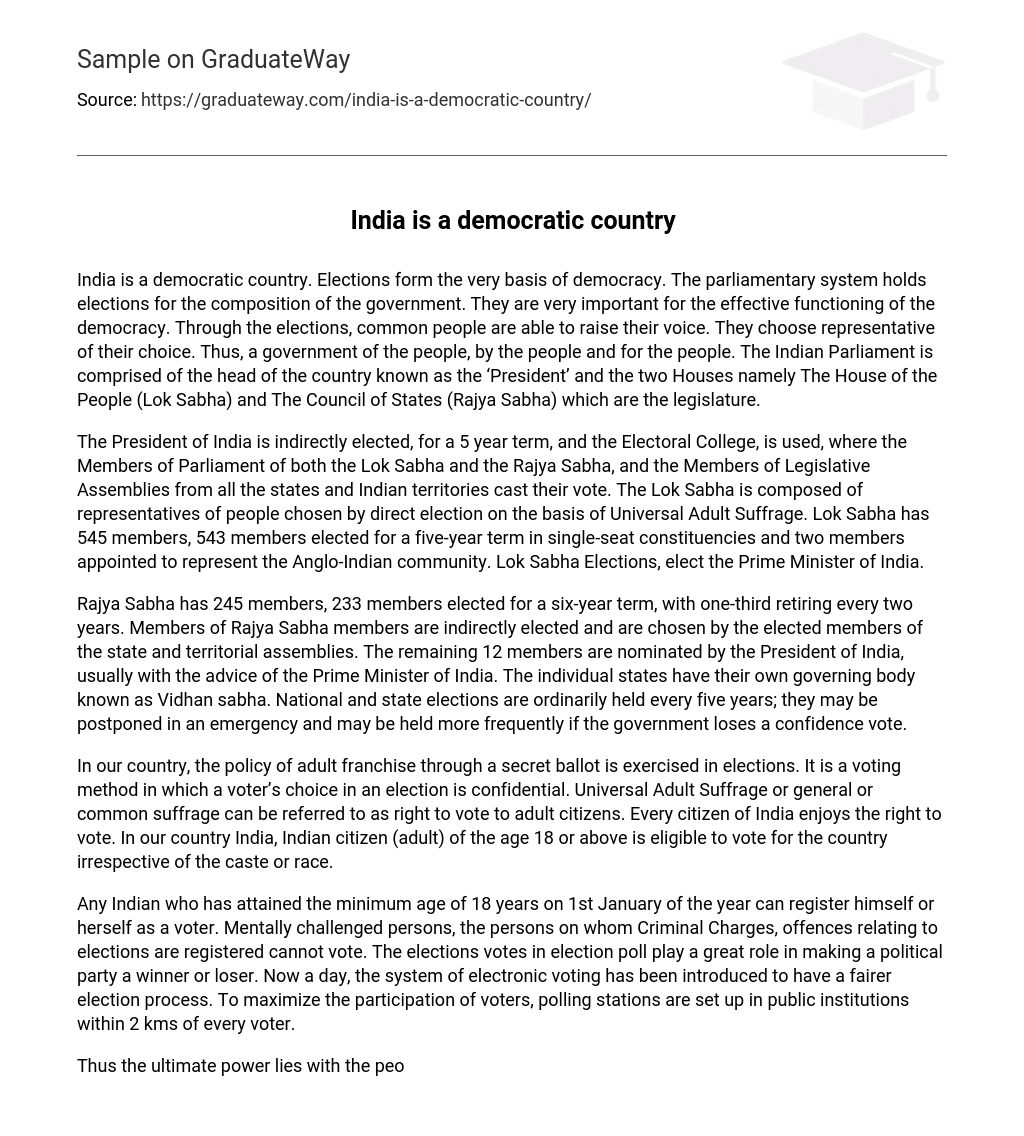Elections are vital in democracy as they decide the makeup of the parliamentary government. They serve a crucial role in advancing effective democracy by giving ordinary citizens the power to express their preferences and select their favored representatives. This guarantees that the government genuinely represents and serves its people.
The Indian Parliament consists of the President, who acts as the country’s head, and two Houses: the House of the People (Lok Sabha) and the Council of States (Rajya Sabha). Collectively, these houses operate as the legislature.
The President of India is chosen for a 5-year term through an indirect process. The Electoral College, comprising Members of Parliament from the Lok Sabha and Rajya Sabha, along with Members of Legislative Assemblies from all states and Indian territories, casts their votes. The Lok Sabha consists of representatives elected through direct elections based on universal adult suffrage. It has a total of 545 members – 543 elected in single-seat constituencies for a 5-year term and two members appointed to represent the Anglo-Indian community. The Prime Minister of India is determined by the Lok Sabha elections.
The Rajya Sabha consists of a total of 245 members, with 233 serving for six years. Every two years, one-third of the members retire. The election process for these Rajya Sabha members is indirect and involves the elected representatives from state and territorial assemblies. Furthermore, the President of India usually nominates 12 members to the Rajya Sabha based on advice from the Prime Minister.
In addition to this, each state has its own governing body called Vidhan Sabha. National and state elections generally occur every five years but can be delayed during emergencies or held more frequently in case a government fails a confidence vote.
In our country, the policy of adult franchise through a secret ballot is exercised in elections. It is the practice of allowing adults to vote confidentially in elections. Universal Adult Suffrage, also known as general or common suffrage, grants the right to vote to adult citizens. Every citizen of India has the right to vote. In India, any adult citizen aged 18 or older, regardless of caste or race, is eligible to vote for the country.
Any Indian citizen who is at least 18 years old as of January 1st of the year can register to vote. However, individuals with mental disabilities or criminal charges related to elections are not eligible to vote. The success of political parties greatly depends on the votes received in election polls. Currently, electronic voting systems have been implemented to ensure a fair electoral process. In order to encourage higher voter participation, polling stations are established within a 2 km distance from each voter and located in public institutions.
Therefore, the power in India lies with its people. All children, regardless of gender, who attend school are potential future citizens. Although they may not currently have the ability to vote or make laws, it will be their responsibility in the near future. As tomorrow’s citizens, young individuals must start preparing themselves for this duty now. The significance of presidential elections should also not be overlooked. Unfortunately, a significant portion of our population shows disinterest in these elections and political matters, resulting in many abstaining from voting – which is a truly detrimental consequence.
Voting is an important duty that demands thoughtful consideration. It is crucial to select the appropriate candidate and comprehend the reasons behind our choice. While casting our votes, we should always evaluate whether the candidate truly warrants our support and possesses the qualifications to lead our nation. We possess the ability to shape our country and forge a better future by electing the most suitable and capable leader. Hence, we must not ignore our responsibility and actively engage in the voting process to mold a more robust and prosperous nation.





